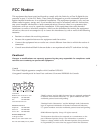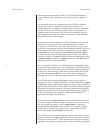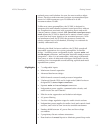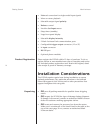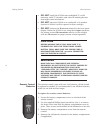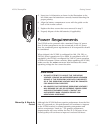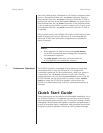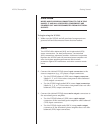
1-2
Getting Started Mark Levinson
and temperature variations, while a second high-performance
stage provides local, high-speed, low-noise power for audio cir-
cuits.
An advanced dual-mono design allows the Nº326S to achieve
exceptional channel separation. Both audio channels use
independent power supplies, communication circuits, and audio
circuits. In fact, each channel’s audio circuits are located in a
separate area of the chassis. This innovative approach isolates
each channel, allowing the Nº326S to produce vividly detailed,
three-dimensional sonic images.
To maximize channel separation, all left-channel connectors are
located on one side of the rear panel and all right-channel
connectors are located on the other side of the rear panel. The
connector complement includes three balanced (female XLR) and
four single-ended (Mark Levinson-designed RCA) stereo input
connectors as well as separate stereo main and record output
connectors. Two Link communication ports make it possible to
link the Nº326S to compatible Mark Levinson components, while
a trigger output connector, ir input connector, and RS-232 port
offer even more control possibilities.
For even greater isolation, the Nº326S deactivates unused inputs
to prevent interference from other components. When an input is
deactivated, the Nº326S disconnects the input signal and ground
connection, eliminating ground loop noise between the Nº326S
and the associated component. As a result, input signals pass
through the Nº326S with remarkable freedom from interference.
The Nº326S offers seven configurable inputs, each of which is
assigned to one of its balanced (XLR) or single-ended (RCA) input
connectors. Single-ended input signals are converted to balanced
signals upon entering the chassis, and processed as balanced signals
thereafter. During this rigorous conversion process, meticulously
balanced circuits preserve all input signal information, passing it
to the associated power amplifier without the limitations of
asymmetrical single-ended designs.
A large front panel select knob provides convenient selection of
the desired input. When an input is selected, just press and hold
the front panel or remote control setup button to open the
corresponding Set Inputs menu, which can be used to change
input names, optimize input gain levels, offset input volume
levels, and assign record output connectors.
Two Mark Levinson-designed discrete volume attenuators control
master volume level with unparalleled accuracy and sonic neutrality.
Constructed from Arlon
®
circuit boards with local power supply
regulation and bypass capacitors, the volume attenuators generate




